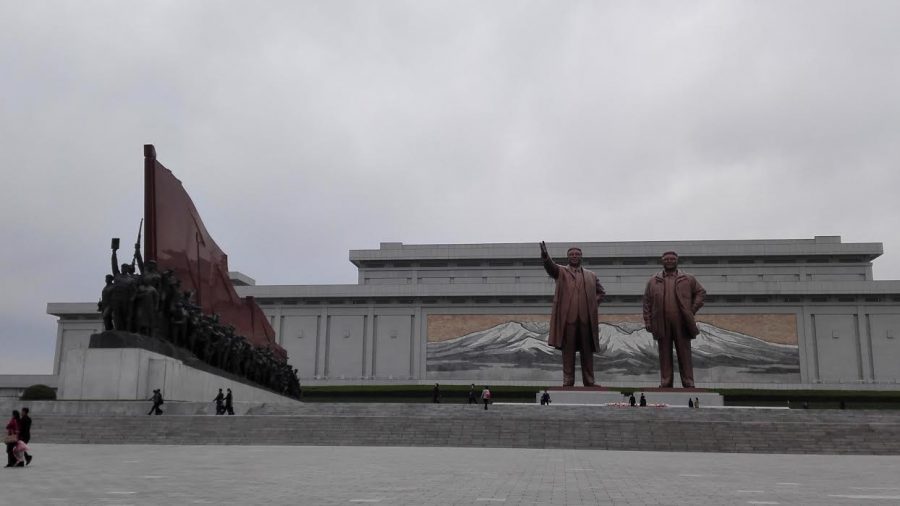On Monday, Suffolk University students got an in-depth look at life in Kim Jong Un’s North Korea, one of the world’s most secretive countries.
Weigi Zhang, Suffolk University Assistant Professor of Government with a focus on political science, gave insight about his experience voyaging through North Korea during an installment of the WorldBoston lecture series. He spoke of his journey to North Korea in May of 2015. He stayed for three days and four nights. His goal for the trip was to learn about North Korean culture and the way of living there.
North Korea has long been regarded as a “high danger” place to travel to under the communist regime of Kim Jong Un, during the governmental conflict between North and South Korea, according to Zhang.
There was a strict set of rules that he was forced to follow while on a tour. The most critical rule forbade any individual from disrespecting leaders or the regime itself. If an individual failed to comply, the North Korean government would imprison them.
“The tour guides did their best to accommodate our needs.” said Zhang. “Unlike in many other countries, it was impossible for visitors to be attacked by local people because of the protection of the guides.”
They were given additional rules, which included photography restrictions. No pictures could be taken the statues of the country’s leaders. Photos of these statues could not be taken from a close angle. In addition, photos of soldiers were not permitted. Despite the restrictions on photography, Zhang took one anyway.
Traveling from one town to the next was complicated because soldiers were stationed at certain locations that serve as checkpoints. At North Korean customs, an officer had to mark down what technological devices, such as phones and cameras, an individual entering North Korea had, Zhang said.
“For me it was easy, the tour guide would get out and explain to a soldier our situation, but for a regular individual, it would be harder,” said Zhang. He explained that if he did not travel with a tour, he would have needed to obtain a different travel visa in order to enter each town.
Zhang noted the importance of a tour guide in North Korea. The tour guide, in his opinion meant to take care of the group, which is a thankless job. On average, a tour guide gets paid 30,000 Korean Won per day, which is roughly equivalent to $30 USD. Since North Korea is an industrialized country, a textile worker makes the most money, according to Zhang, which is on average 63,000 Korean Won, roughly $62 USD.
Zhang thoroughly enjoyed the food that he ate at various restaurants and noted how flavorful it was. Traditional Korean cuisine largely consists of rice, vegetables and meats; however, the cuisine of North Korea is slightly different than that of South Korea. The taste of North Korean food is described, by Zhang, as juicier and less spicy than South Korean dishes that focus on seasoning and cater to savory palettes. Kimchi is a traditional Korean dish that Zhang got the chance to try. It consists of fermented vegetables, cabbage and Korean radishes in a brine of garlic, ginger, scallions and chili peppers. According to Zhang, guides are also paid with rations of cabbage so that they can eat kimchi frequently.
Domestic life in North Korea is patriarchal. The father of the household will often receive a separate meal during supper which is often better than what the rest of the household eats, according to Zhang.
“Korean leaders are often referred to as the father of the society,” said Zhang. “Mistreating or disrespecting the father or leader is social taboo.”
This take on domestic roles within a household is tied to Confucianism, a theory that focuses on hierarchy and order, said Zhang. Confucianism is embedded in North Korean culture. After visiting, Zhang gathered that this theory is applied so that Korean leaders can strengthen their absolute authority over society.
The next WorldBoston event will take place on Dec. 8 in the Suffolk University Law building from 6pm to 7:30pm. The topic will be China’s Naval Expansion: The Pacific and Beyond. It will feature guest speaker Peter Dutton, director or China Maritime Studies Institute at the U.S. Naval College.







